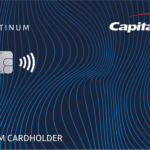Credit reports and scores wield immense influence over your finances. They determine whether you’re approved for loans and credit cards as well as dictating their terms, such as the interest rates that may apply. That is why it is vital to take proper steps towards maintaining them and knowing which steps you need to take.
Credit repair depends on many different variables, but its duration ultimately lies with you and how badly your initial damage was done, the state of your financial health now, and your commitment level in regards to credit restoration. With hard work on your part it should be possible to see improvements within months and reach your target of an improved score.
Bad credit scores can often be traced back to serious financial errors on your part, from filing bankruptcy involuntarily to failing to pay credit card bills on time. While minor errors such as inaccurate information or old accounts can often be rectified quickly and efficiently, more serious errors may lead to irreparable damage that cannot be reversed.
Credit scores are determined by various factors, including payment history, the amount of credit available and your utilisation ratio. Payment history accounts for 35% of your score; an occasional 30-day late payment won’t harm it as much; going more than 60 days late on a credit card account could severely lower it; paying down outstanding balances as well as clearing items that have gone into collections are key components to increasing it.
Short-term strategies to boost your credit score include taking several key actions. Reviewing each of the three major credit bureaus’ reports for accuracy can help identify errors that are negatively affecting your score; once discovered, dispute these errors under the Fair Credit Reporting Act; they have 30 days to investigate your complaint and update their reports accordingly.
An additional way to quickly build credit is to ask a trusted friend or family member to add you as an authorized user on one of their credit cards. While this could have its own set of advantages and disadvantages, this gives you an opportunity to build credit without the added stress of managing one yourself and making monthly payments.
Longer-term, it is crucial that you begin saving money and building emergency funds so you won’t rely on credit to cover unexpected emergencies. Doing this will reduce the chance of missing payments or damaging your credit again later. In addition, creating and sticking to a budget will allow you to prepare for unexpected expenses more easily – helping prevent you from falling into a cycle of debt that can be hard to break free from.



